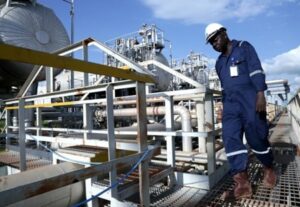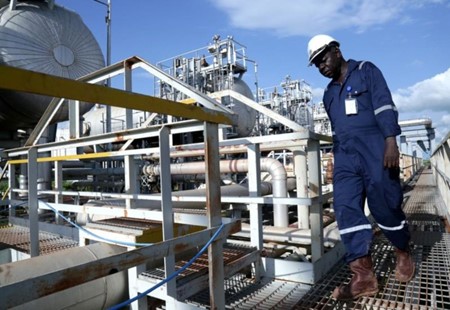
By Kei Emmanuel Duku
A second drone attack in less than a week at Heglig airport has prompted key oil companies to expressed fear of shutdown should the situation continue.
The latest incident occurred at 2 a.m. on August 30, following an initial attack on August 26.
Many people lost their lives in the continues attacks on oil facilities.
In separate but identical letters dated August 30, seen by this outlet, the 2B Operating Company (OPCO) and Petrolines for Crude Oil Co. Ltd (PETCO) confirmed they are on high alert.
However, Dr. Fadul Mahmoud, Undersecretary of the Ministry of Energy & Petroleum in Sudan confirmed the attack on the Heglig Operation basecamp
Mahmoud confirmed the attacked on the important oil facility in a letter addressed to Eng Deng Lual Wol Undersecretary in Ministry of Petroleum in Republic of South Sudan.
“RSF, in a continuation of their aggression on critical infrastructure related to petroleum export operations, at -2:30am this morning attacked the Heglig Operations Basecamp, destroying the airports terminals” Mahmoud said in a letter.
“Shrapnel from the attacked reached the basecamp and the attacked cause widespread panic among the staff operating the Heglig CPF and PS# of the export system” he added.
South Sudan government and Ministry of Petroleum in Particular is yet to respond to the letters.
Efforts to reach them by this outlet were not successful.
Separate statement signed by Mohamed Siddig Elhusein, President of OPCO and General Manager of PETCO, stated that while the companies remain committed to their operations, the safety of their personnel is the top priority.
A potential shutdown is being prepared should the attacks continue. The documents were addressed to the South Sudan Ministry of Petroleum, though the government has yet to issue a statement.
The attacks on the Heglig airport and oil field represent a significant escalation in regional instability, putting critical infrastructure at risk.
Attacks on oil operations in South Sudan are not a new phenomenon.
The country’s oil infrastructure, primarily located in the border regions with Sudan, has been a frequent target due to a mix of political, economic, and security-related factors.
These incidents have significant consequences, including production halts, economic losses, and risks to the lives of oil workers.
The reliance of South Sudan’s economy on oil revenue makes these attacks particularly damaging, affecting the country’s stability and ability to fund essential services.
The recent drone attacks at Heglig signify an alarming increase in the sophistication and directness of these threats, highlighting the volatile security situation in the region
In a press release issued on August 30, 2025, Acting Undersecretary Dr. Fadul Mahmoud of the Ministry of Energy & Petroleum detailed the devastating and unprovoked attack on the Heglig Operations Basecamp.
The RSF, in a brazen act of aggression, launched a full-scale assault in the early morning of August 26, 2025, using mortars and machine guns. This was the latest in a series of attacks on vital civilian infrastructure in the region.
The basecamp, already operating with a reduced staff due to previous security concerns and evacuations, was largely unprotected.
The attack, which came at 2:30 a.m., targeted key facilities, including the Central Processing Facility and the PS#1 export system. According to Dr. Mahmoud’s statement, the Heglig Airport has been non-operational for months, severely limiting the ability to evacuate personnel or receive outside support.
The disruption has made it impossible for PETCO to meet its planned oil lifting schedule for the month. Dr. Mahmoud’s statement underscored the severity of the situation, noting that such attacks constitute a “serious threat to the stability of oil flows from South Sudan.
He concluded by emphasizing that without peace, the continued operation and security of these vital national assets remain in jeopardy.
This year South Sudan’s crude oil reached the marine terminal at Port Sudan according to officials.
Despites obstacles, South Sudan government continue to report that oil continue to flow despite the challenges.



